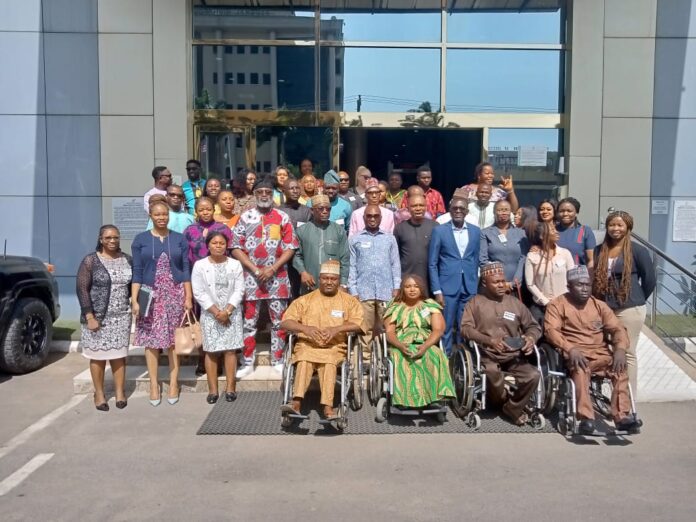The Executive Director, Centre for Citizens with Disability, David Anyaele, on Tuesday lamented that people with disabilities still face challenges despite the signing of the Disability Act by the President, Major General Muhammadu Buhari (retd), in 2019.
Anyaele stated this at the fourth anniversary of the Disability Act with the theme, ‘2023 General Elections and Beyond; Creating the Future We Desire for Citizens with Disability’.
Buhari on January 23, 2019 signed into law a legislation that would henceforth criminalise common discriminations against persons with disabilities.
The Discrimination against Persons with Disabilities (Prohibition) Act, would see corporate entities and individuals face excruciating sanctions if found guilty of discriminating against persons with impairments.
In his remark, the executive director explained that after four years, the discrimination against PWDs is still very high, blaming the ministries, departments and agencies for not recognising PWDs in their yearly activities and programmes.
He said, “People with disabilities are still facing barriers after the disability law was passed and signed four years ago.
“The barrier has to do with our attitude. Discrimination against PWDs is still very high in this country. Research that we conducted last year showed that ministries, departments and agencies still stigmatise and discriminate against PWDs in their programmes and activities.
“The only office that is consistent in promoting issues with PWDs is President, Major General Muhammadu Buhari (retd). The President in his speeches, addresses have called on agencies to respond to the issues affecting PWDs in Nigeria.
“Regrettably, the MDAs are still struggling to understand their roles and responsibilities and what PWDs represent in the work they do. That is the outcome from our findings.”
Anyaele added that PWDs face employment issues despite five per cent employment given to them by the law.
He stated, “Also, the law provides five per cent employment opportunities for PWDs. These five per cent provisions are yet to be fulfilled in most MDAs.
“It is a huge struggle for PWDs to go to school. What it costs an individual without a disability to go to school is different from what it will cost PWDs to go to school. It is much higher. PWDs struggle to get jobs and in the end, they become burdens to their families.”
He however, said that “states are making a commitment in implementing the Act.
“However, only 17 states have implemented the bill. Our purpose here is that we support the states in making sure that the Disability Act is implemented.”
In his goodwill message, the Country Director, Disability Rights Fund, Theophilus Odaudu, said that implementation is a major challenge after the Disability Act had been signed.
Odaudu noted, “We are at the other phase, where we need to look at the implementation of the law. It has been our struggle for years now. Our government structures are still not making movement of PWDs easy.”


